Swarn Basantmalti Ras
₹510 Original price was: ₹510.₹500Current price is: ₹500.
Basantmalati Ras is classified as a Rasayana in Ayurveda, which means it is believed to have rejuvenating and revitalizing properties that can help improve overall health and vitality.
However, it’s important to note that the use of Ayurvedic medicines should be done under the guidance of a qualified Ayurvedic practitioner, as they can be potentially harmful if not used properly. Additionally, the safety and efficacy of these medicines have not been evaluated by the FDA, so caution should be exercised when using them.
- Delivery & Return
Delivery
We ship to all over the world. All orders are shipped with a UPS tracking number. Always free shipping for orders over 1000. During sale periods and promotions the delivery time may be longer than normal.Return
Adarsh Ayurvedic Pharmacy will accept exchanges and returns of undamaged box within 30 days of the date of purchase (14 days during the sales period), on presentation of the original till receipt at any store where the corresponding collection is available within the country of purchase. Your return will usually be processed within a week to a week and a half. We’ll send you a Return Notification email to notify you once the return has been completed. Please allow 1-3 business days for refunds to be received to the original form of payment once the return has been processed.Help
Give us a shout if you have any other questions and/or concerns. Email: aapdeepak.hdr@gmail.com Phone: 9897902760
Basantmalati Ras is classified as a Rasayana in Ayurveda, which means it is believed to have rejuvenating and revitalizing properties that can help improve overall health and vitality.
However, it’s important to note that the use of Ayurvedic medicines should be done under the guidance of a qualified Ayurvedic practitioner, as they can be potentially harmful if not used properly. A
Basantmalati Ras (also spelled as Basant Malti Ras) is a traditional Ayurvedic medicine that is used for various health conditions, including respiratory disorders, fever, and skin disorders. It is typically made from a combination of minerals such as purified mercury, sulfur, and mica, along with herbs like triphala, giloy, and neem.
Note: We recommend a consultation with an Ayurvedic physician before consumption of these products as each body & individual is unique. For a free consultation with our in-house physician please call us on +918791111138 between 4 pm to 6pm.
Benefits of taking Ayurvedic medicine:-
- contain no synthetic or chemical ingredients
- medicine has no side effects
- lab tested
- conventional material is used
We recommend 6 month usage to attain optimum results
All the information is provided for educational purpose only and it is not intended to be a substitute for professional medical advice, diagnosis or treatment.
Buy 10 get one free.
Selflife: 3 Years
| Weight | 250 g |
|---|---|
| Dimensions | 14 × 12.5 × 8.5 cm |
| Weight | 1gm |
Based on 0 reviews
|
|
|
0% |
|
|
|
0% |
|
|
|
0% |
|
|
|
0% |
|
|
|
0% |
Only logged in customers who have purchased this product may leave a review.
Related Products
Swadukantak is typically taken in tablet form, and the recommended dosage and duration of use can vary based on the individual’s specific health needs and the guidance of a qualified healthcare professional. It is important to note that like all herbal remedies, Swadukantak may interact with certain medications or have potential side effects in some individuals.
Swadukantak is an Ayurvedic herbal formula used to support healthy digestion and promote overall gastrointestinal health. It is a blend of several herbs, including Chitrak (Plumbago zeylanica), Pippali (Piper longum), and Ajwain (Trachyspermum ammi).
Swas Chintamani Ras (also spelled as Swas Kas Chintamani Ras) is a traditional Ayurvedic medicine that is used to treat respiratory disorders, such as asthma, bronchitis, and cough. It is typically made from a combination of minerals such as purified mercury, sulfur, and mica, along with herbs like vasa, yashtimadhu, and pippali.
However, it’s important to note that the use of Ayurvedic medicines should be done under the guidance of a qualified Ayurvedic practitioner, as they can be potentially harmful if not used properly. Additionally, the safety and efficacy of these medicines have not been evaluated by the FDA, so caution should be exercised when using them.
Swas Chintamani Ras (also spelled as Swas Kas Chintamani Ras) is a traditional Ayurvedic medicine that is used to treat respiratory disorders, such as asthma, bronchitis, and cough. It is typically made from a combination of minerals such as purified mercury, sulfur, and mica, along with herbs like vasa, yashtimadhu, and pippali.
However, it’s important to note that the use of Ayurvedic medicines should be done under the guidance of a qualified Ayurvedic practitioner, as they can be potentially harmful if not used properly. Additionally, the safety and efficacy of these medicines have not been evaluated by the FDA, so caution should be exercised when using them.
Maha Narayan Tail is typically applied topically to the affected area and gently massaged into the skin. The frequency and duration of use can vary based on individual needs and the guidance of a qualified healthcare professional. It is important to note that like all herbal remedies, Maha Narayan Tail may cause allergic reactions or other side effects in some individuals, and should be used with caution.
Maha Narayan Tail is an Ayurvedic herbal oil that is made from a blend of several herbs, including Bala (Sida cordifolia), Ashwagandha (Withania somnifera), and Manjistha (Rubia cordifolia). This oil is commonly used in Ayurvedic medicine for the treatment of joint pain, muscle pain, and stiffness.
Arjuna Ghan is typically taken orally in liquid form, and the dosage and duration of treatment may vary depending on the individual’s needs and the practitioner’s recommendations. It is important to consult with a qualified Ayurvedic practitioner before using Arjuna Ghan, especially if you have a history of medical conditions or are currently taking any medications. Additionally, it is important to be aware of potential side effects and contraindications before using any herbal supplement.
The primary active compounds in Arjuna Ghan include flavonoids, tannins, and triterpenoids, which are believed to have antioxidant and anti-inflammatory properties. Arjuna Ghan is commonly used in Ayurvedic medicine for supporting healthy cardiovascular function, maintaining healthy blood pressure, and reducing cholesterol levels.
Prawal Panchamrit is believed to have antacid and digestive properties, which can help in the treatment of acidity, heartburn, indigestion, and gastritis. It is also believed to improve appetite, promote digestion, and reduce inflammation in the stomach lining.
However, it is essential to note that the use of Prawal Panchamrit should be done under the guidance of a qualified Ayurvedic practitioner. Overdose or incorrect usage can cause adverse effects like constipation, stomach upset, and nausea. It is also not recommended for pregnant and lactating women and people with liver or kidney problems.
Jatyadi tail is typically applied topically to the affected area and gently massaged into the skin. The frequency and duration of use can vary based on individual needs and the guidance of a qualified healthcare professional. It is important to note that like all herbal remedies, Jatyadi tail may cause allergic reactions or other side effects in some individuals, and should be used with caution.
Jatyadi tail is an Ayurvedic herbal oil that is made from a blend of several herbs, including Jatiphal (Myristica fragrans), Haridra (Turmeric), and Neem (Azadirachta indica). This oil is commonly used in Ayurvedic medicine for the treatment of various skin disorders, such as cuts, wounds, burns, and other skin irritations.
Haritaki is another important herb in Ayurveda and is considered to be one of the most versatile herbs in the Ayurvedic pharmacopoeia. It is believed to have a wide range of health benefits, including promoting digestion, supporting healthy liver function, and improving cognitive function.
Together, Chitrak and Haritaki are believed to enhance each other’s effects, making Chitrak Haritaki a powerful herbal remedy for digestive disorders and other health conditions.
Chitrak Haritaki is commonly used in Ayurvedic medicine to treat a variety of health conditions, including poor digestion, constipation, abdominal pain, flatulence, anemia, and respiratory disorders. It is typically taken in powdered form, mixed with warm water or milk, or Chitrak Haritaki is an Ayurvedic herbal formulation made from two main ingredients: Chitrak (Plumbago zeylanica) and Haritaki (Terminalia chebula).
Dashmool Ghan is typically taken orally and the dosage and duration of treatment may vary depending on the individual’s needs and the practitioner’s recommendations. It is important to consult with a qualified Ayurvedic practitioner before using Dashmool Ghan, especially if you have a history of medical conditions or are currently taking any medications.
Additionally, it is important to be aware of potential side effects and contraindications before using any herbal supplement. Dashmool Ghan is believed to have several health benefits, particularly for the respiratory and nervous systems. The primary active compounds in Dashmool Ghan include alkaloids, flavonoids, and triterpenoids, which are believed to have anti-inflammatory, analgesic, and antioxidant properties. Dashmool Ghan is commonly used in Ayurvedic medicine for reducing inflammation, pain, and anxiety, and promoting overall health and wellness.
Pathyadi Kwath is an Ayurvedic herbal decoction made from a blend of several herbs, including Haritaki (Terminalia chebula), Bibhitaki (Terminalia bellirica), and Shunti (Zingiber officinale).
According to Ayurvedic principles, Pathyadi Kwath is believed to help support respiratory health, particularly in cases of cough and cold. It is also commonly used to support digestive health, promote healthy metabolism, and alleviate symptoms associated with inflammation.
According to Ayurveda, Sanjivani Vati is used to balance the Pitta and Kapha doshas in the body. It is commonly used for the treatment of fever, cough, cold, and other respiratory tract infections. It is also used to boost immunity and improve digestion.
Sanjivani Vati is known for its anti-inflammatory, antipyretic, and immunomodulatory properties. It helps in reducing fever, inflammation, and pain in the body, and also helps in boosting immunity and preventing infections. It is also beneficial for treating digestive disorders such as indigestion and bloating.
Amalaki Rasayana is an Ayurvedic herbal formula made from the fruit of the Amalaki tree (Emblica Officinalis), also known as Indian Gooseberry. It is believed to have a rejuvenating effect on the body and is commonly used to promote overall health and well-being.
According to Ayurveda, Amalaki Rasayana is classified as a “Rasayana,” which means it is a rejuvenative tonic for the body and mind. It is also believed to have a powerful antioxidant effect, which helps to protect the body from free radical damage.
Krimi Kutar Ras is an Ayurvedic medicine used for the treatment of intestinal worms and parasitic infections. It is made from a combination of various herbs and minerals, including Vatsanabha (Aconitum ferox), Pippali (Piper longum), Shuddha Gandhak (Purified Sulphur), and Tankana Bhasma (Borax).
However, it is essential to note that the use of Krimi Kutar Ras should be done under the guidance of a qualified Ayurvedic practitioner. Overdose or incorrect usage can cause adverse effects like stomach upset, vomiting, and diarrhea. It is also not recommended for pregnant and lactating women and child.

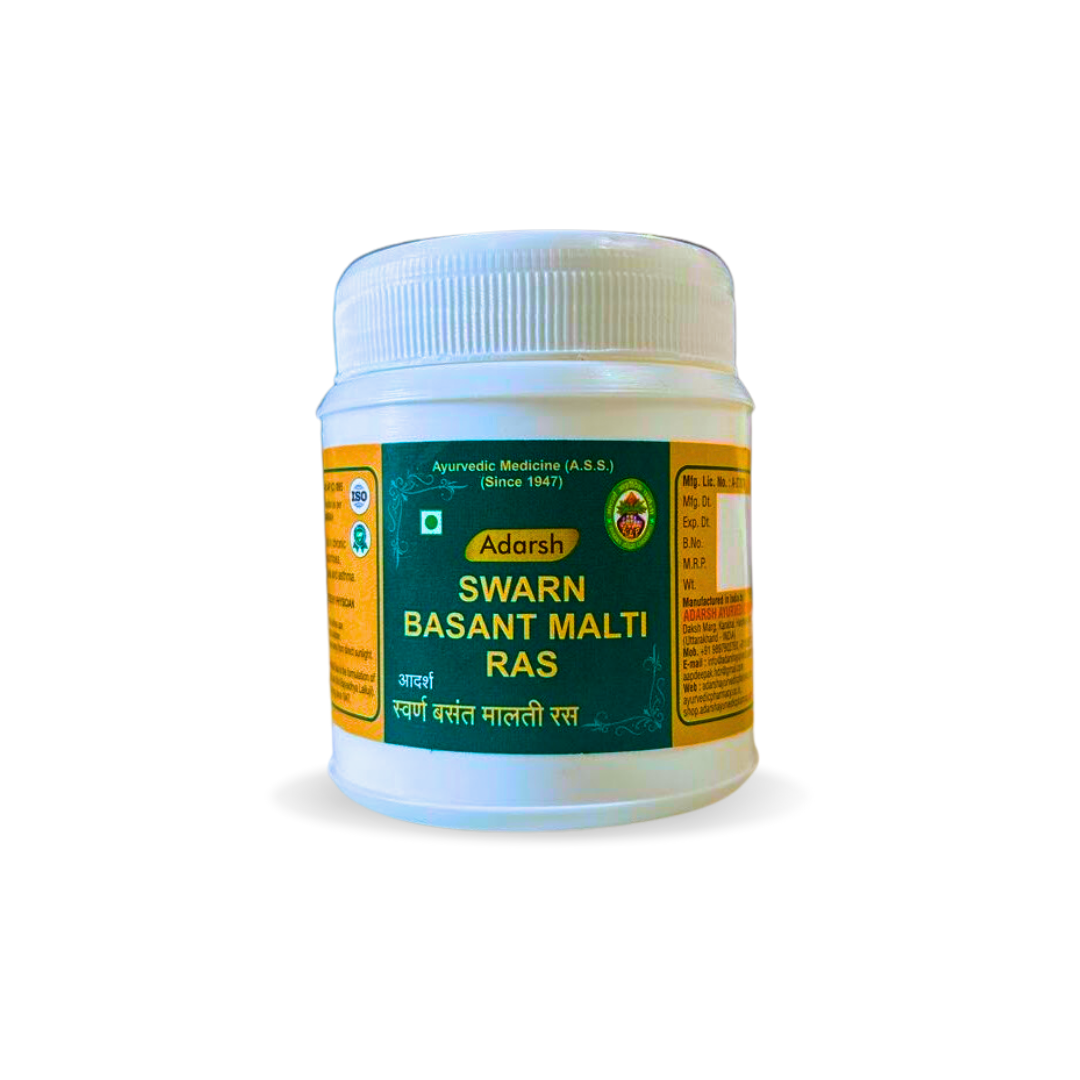
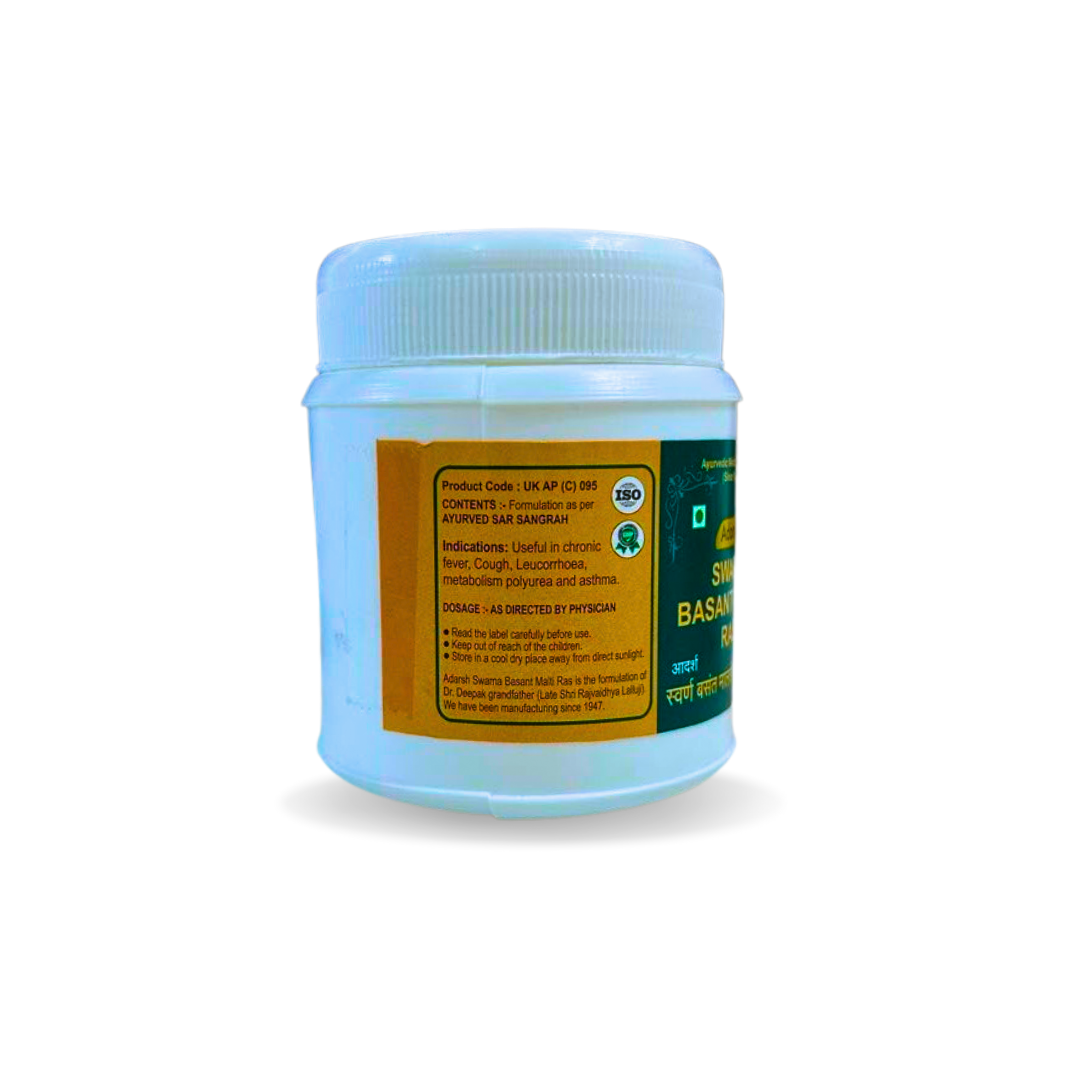
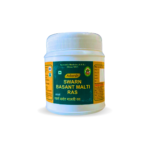
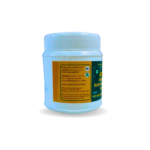

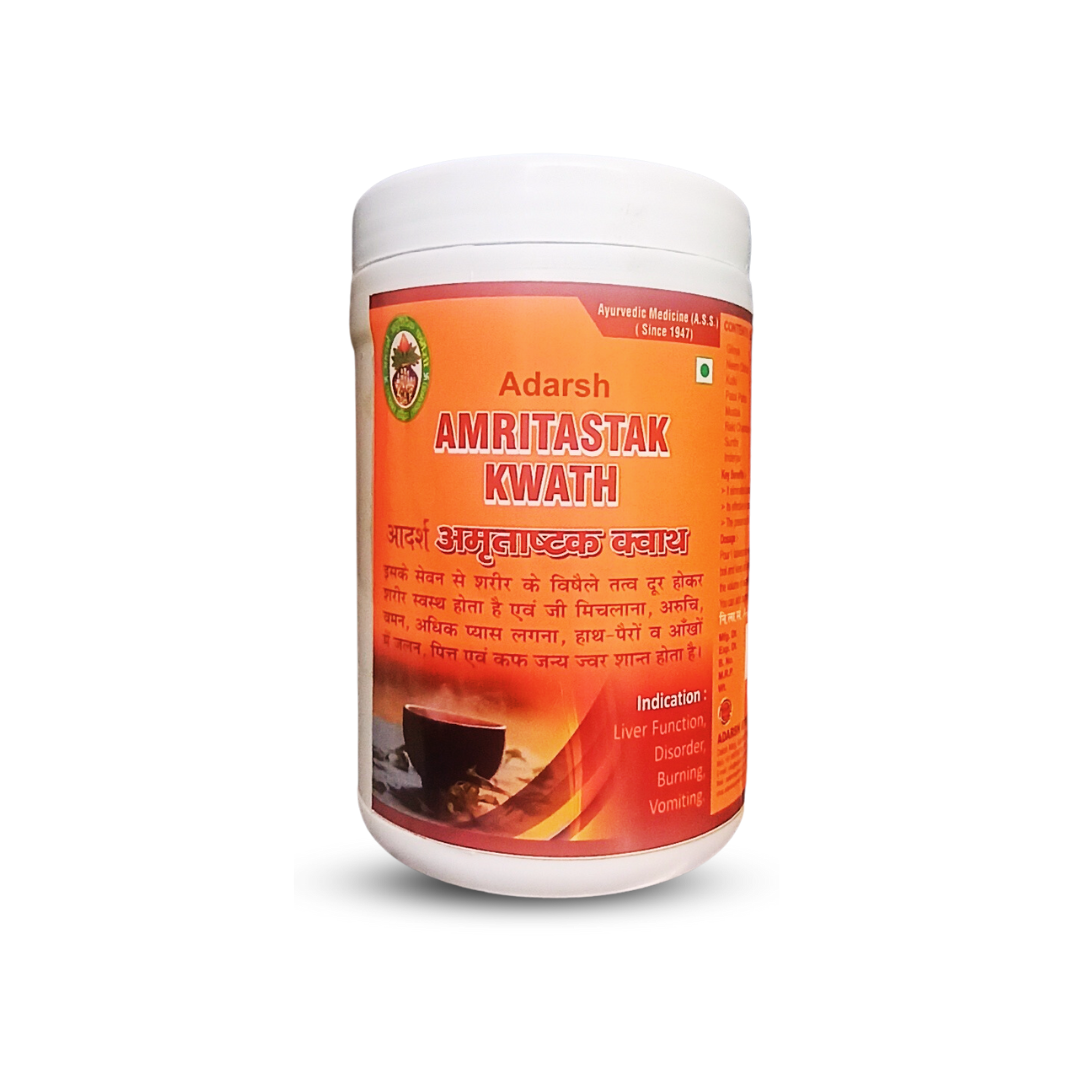


















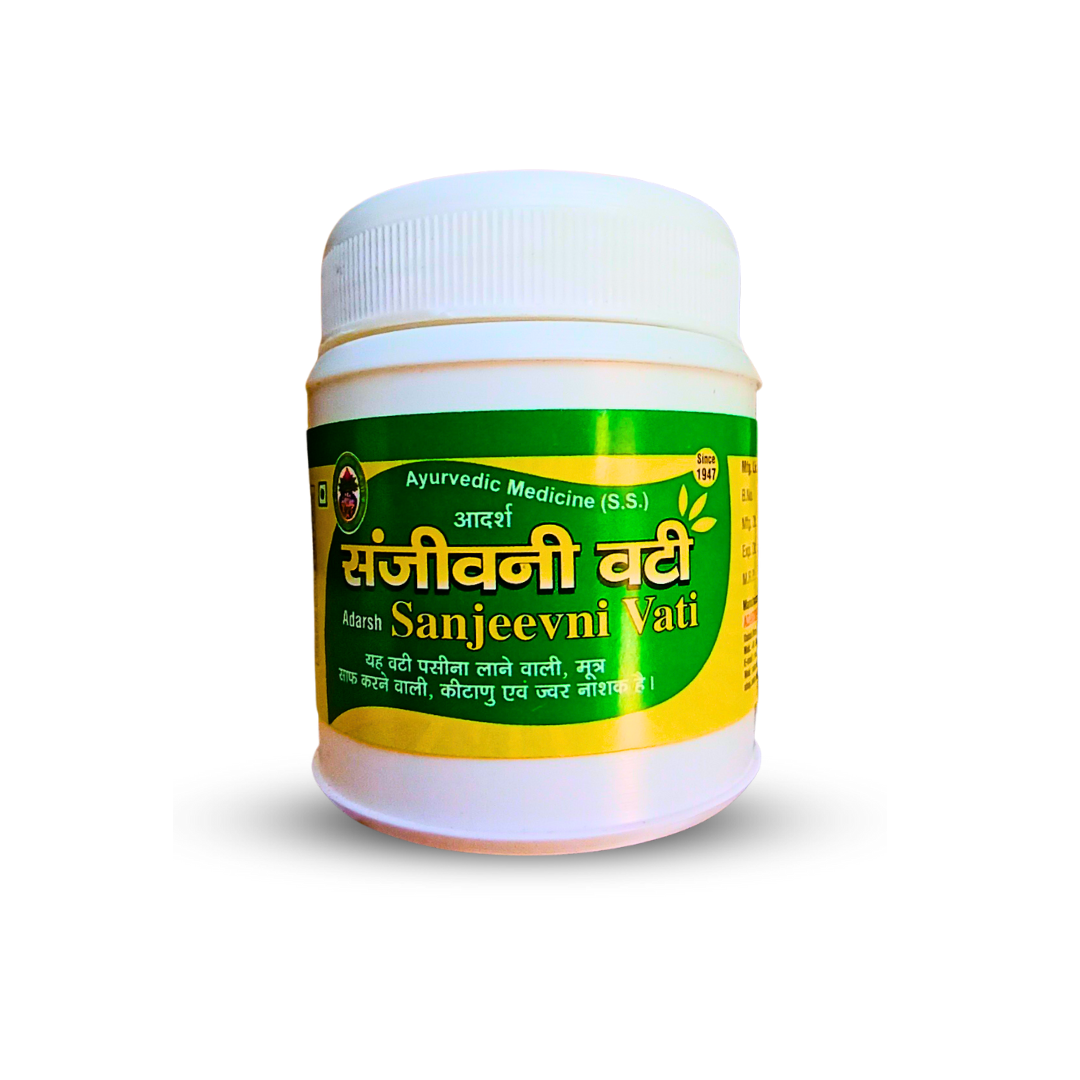





Reviews
There are no reviews yet.